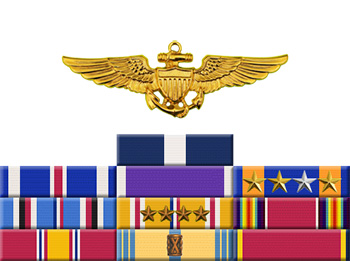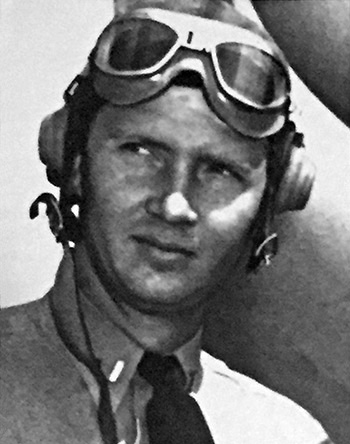
|
Charles E. Watts |
 |
|||
| Rank, Service | ||||
Lieutenant Commander O-4, U.S. Navy |
||||
| Veteran of: | ||||
|
||||
| Tribute: | ||||
Billy Watts was born on November 14, 1921, in Ben Wheeler, Texas. He enlisted in the U.S. Navy Aviation Cadet Program on May 7, 1942, and was commissioned an Ensign and designated a Naval Aviator on February 16, 1943. After completing fighter transition training and carrier qualification training, Ensign Watts served as an F6F Hellcat pilot with VF-18 aboard the aircraft carrier USS Bunker Hill (CV-17) from October 1943 to March 1944, and during this time he was credited with the destruction of 2.25 enemy aircraft in aerial combat. He then served as an F6F pilot with VF-17 aboard the aircraft carrier USS Hornet (CV-12) from January to June 1945, adding another 6.5 enemy aircraft to record, for a total of 8.75 enemy aircraft destroyed in the air during World War II. Lt Watts left active duty and joined the Navy Reserve on November 2, 1945, and retired as a Lieutenant Commander from the Navy Reserve on November 1, 1959. |
||||
|
||||

